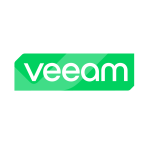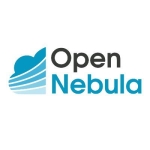What is most valuable?
The alerts are the most valuable feature of the product. We run terminal servers and I like the granular ability of it getting into the guest OS. It gives us alerts for the hard drive, how is it on space, or pretty much anything happening at the guest level. It gives us a single pane of glass.
How has it helped my organization?
We use it a lot for capacity planning. Like I’ve mentioned, we do terminal servers. What we've been doing lately is giving it a metric that shows how many more VM's can we fit on that particular host. It's been great for that, and told us, with the research that's available, we can fit 10 more VMs on that host. From a capacity planning view, it's been great.
It has definitely helped us avoid outages with our internal servers. We've been having an issue with temporary profiles filing up the hard drives, and early on, before we really had the monitoring, that terminal server would just go down. Now at least we have something that says we have 10% hard drive space left on this particular machine; we get the alert in vROps, and we are able to get to it before it goes down.
It has not been helpful from a capacity planning point, but we have done a lot with the oversized reports, tuning some VMs. We were able to pull back vCPUs, memory and storage. We can reclaim some of that space that was being wasted on oversized machines. I guess that's capacity planning to some degree, but tuning is more what we use it for.
We also haven't really used the performance management features too much.
What needs improvement?
Even though the set up was kind of straightforward, getting the lay of the land was at times kind of confusing; I don't know if that's an indictment on me or the software. There was documentation readily available, it just wasn't as intuitive as I thought it would be, straight out the box.
Other than that, I don't really know about specific areas with room for improvement because at this point, we are just scratching the surface of what it does, because we are a smaller shop. We just had a merger, so at the top of the year, we're going to be onloading, onboarding a lot of DRs and scaling pretty quickly. Then I'll be able to really take it for a test drive.
What do I think about the stability of the solution?
Stability-wise, I haven't had any issues.
What do I think about the scalability of the solution?
Because we are still a smaller shop, we haven't really had to scale it. Pretty soon, we probably will, because we are going to add some VMware Horizon for our VDI and NSX. I'm pretty sure we're going to have to scale it.
How are customer service and technical support?
I haven't used technical support for vROps.
Which solution did I use previously and why did I switch?
We weren't previously using anything. Just having a central measurement point was light years ahead of trying to go into each one, or setting up different types of software that have monitoring. It was just easier doing it with vROps.
How was the initial setup?
Initial setup was actually pretty straightforward. I pretty much launched the VM, went into the web query and set it up from there; set up all the sensors, took you through a wizard. That was pretty much it. I didn't have to read about any customization.
Which other solutions did I evaluate?
Before choosing this product, I did not evaluate other options. We actually bought vSphere with vROps, so we never even looked at anything else.
What other advice do I have?
Definitely go with it, if you're looking for a centralized management point, as far as being able to monitor everything, without having to manually go in and get sizing reports for VMs. It even reports on networking issues.
I'm waiting to see when we go into VDI and NSX; I think we'll really open it up then with a lot more monitoring options.
The most important criteria when selecting a vendor like VMware is pretty much support. We've had some vendors where it's not that the product’s bad, but when it does go south, the support hasn't been there. We definitely research, whether it's going online, looking at message boards, just kind of getting a feel for what other customers’ expectations are, if the vendor is meeting them or not. That's one of the things that we are really big on, the support perspective.
Disclosure: I am a real user, and this review is based on my own experience and opinions.














